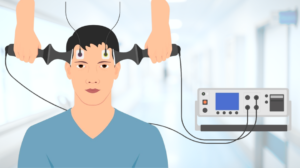Here, we’re going to explore what Major Depressive Disorder (MDD) is – its symptoms and its causes. We’ll also share how to treat and manage MDD because effective treatment does exist. There is always hope.

What is Major Depressive Disorder (MDD)?
As humans, we all experience good days, bad days, so-so days, and everything in between. Often, our negative emotions come and go as the days pass. For those suffering from MDD, low moods are consistent and persistent for at least two weeks.
Some of the symptoms of MDD include:
- Struggling to make decisions
- Struggling to remember things and concentrate
- Sleeping too much or not sleeping enough
- Weight and appetite changes
- Loss of interest in things typically enjoyed – socializing, hobbies, sex
- Tiredness, fatigue, and loss of energy
- Low self-esteem
A person experiencing MDD will often have thoughts of hopelessness, low self-worth, and even thoughts of suicide. To their friends and family, they might appear irritated and unmotivated. They could also appear to be living a happy, normal life, while secretly suffering from MDD.

What Causes MDD?
Most individuals with MDD have a combination of factors present. These factors include a family medical history of mental illness, imbalances in brain chemistry, extreme stress, trauma, or even the diagnosis of another illness.
MDD is highly prevalent in young adults aged 18-35. In fact, 11 percent of Canadians aged 15-24 have experienced depression and 14 percent of that segment have considered suicide. This disorder affects all ages and genders, but it is especially problematic for young adults.
To diagnose MDD, your healthcare professional will ask you a series of questions that pertain to your mental health and medical history. They can’t diagnose MDD with a lab test, but they can rule out other conditions. The process of diagnosis can be overwhelming for someone experiencing MDD, which is why only one-third of Canadians with depression seek help.
CAMH has a great self-assessment tool which can help you decide to seek help if you’re unsure.

MDD and Other Types of Depression
There are several different types of depression that include unique symptoms and circumstances. They include post-partum depression, seasonal affective disorder (SAD), and dysthymia.
MDD is sometimes confused with situational or episodic depression. Situational depression occurs in response to a traumatic or highly stressful life event such as losing a loved one.

Treating Major Depressive Disorder
Some of the most common treatment options for MDD are medications, psychotherapy, and sometimes, brain stimulation therapies. MDD can be managed by combining treatment, like ongoing counselling, with a healthy lifestyle.
An excellent resource for young adults seeking information on treating MDD is WalkAlong. It helps users track their symptoms, find community, get accurate information, practice self-help exercises, and find resources for treatment.
Psychology Today Canada has a database of therapists you can search through to find someone with experience treating mental illness and MDD. The Government of Ontario is promoting a program called BounceBack which might be appropriate for you.

There is Hope
Soon it will be possible for young adults experiencing serious mental illness, like MDD, to receive treatment at Eli’s Place, Canada’s first rural residential treatment centre for mental illness. Together, we can go from mental illness to hopeful futures. To contribute to our goal of opening our doors in 2021, learn how you can support Eli’s Place.
Eli’s Place will be a rural, residential treatment program for young adults with serious mental illness. To learn more about our mission and our proven-effective model click here.




